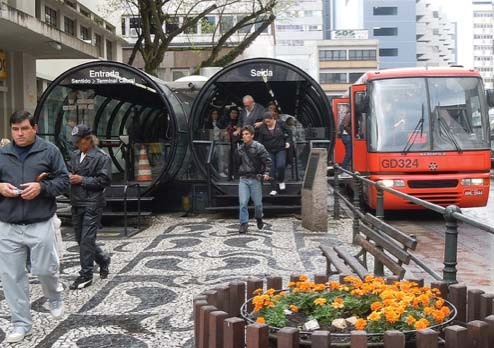BRT (Bus Rapid Transport) System in South Africa
City leaders from around the world met in Singapore on March 9, 2016 for the launch of the ‘Global
Platform for Sustainable Cities’, or GPSC, which is part of an initiative funded by the Global Environment Facility (GEF). The platform is expected to mobilize up to $1.5 billion over the next fi ve
years for urban sustainability programs in 11 developing countries, including Brazil, Cote D’Ivoire, China, India, Malaysia, Mexico, Paraguay, Peru, Senegal, South Africa and Vietnam.
Coordinated by the World Bank and supported by multilateral development banks, UN organizations, think tanks and various city networks, the GPSC is a knowledge sharing program that will provide access to cuttingedge tools and promote an integrated approach to sustainable urban planning and financing. The GPSC will work with a core group of 23 cities, but will reach many more by sharing of data, experiences, ideas, and solutions to urban challenges, and by linking the knowledge to fi nance that will infl uence investment flows toward building cities’ long-term urban sustainability.
The new Global Platform is designed to help mayors and other municipal leaders take more informed decisions in the day-to-day management of their cities, including improving access to clean water, energy, and transport, as well as efforts to mitigate climate change. It supports cities in pursuing evidence-based approaches to urban planning, including geospatial data, and establishing urban sustainability indicators.
In particular, the GPSC will provide cities with ways to help confront issues like climate change, to which cities are uniquely vulnerable, as almost half a billion urban residents live in coastal areas, increasing their exposure to storm surges and sea level rise. Cities also consume over two-thirds of global energy supply, and are responsible for 70% of greenhouse gas emissions.
The products and services provided by the GPSC will include studies, workshops, and online data that will leverage existing expertise in order to promote an integrated approach to tackling complex, multi-sector issues. With common metrics and guidelines in place, the lessons learned from the initial 23 cities can also be shared with hundreds of other cities via a wide range of city networks and other partners.
It will be implemented by the World Bank in partnership with the African Development Bank, the Asian
Development Bank, the Development Bank of South Africa, the Inter-American Development Bank, the United Nations Environment Program, the United Nations Development Program, and the United Nations Industrial Development Organization.










